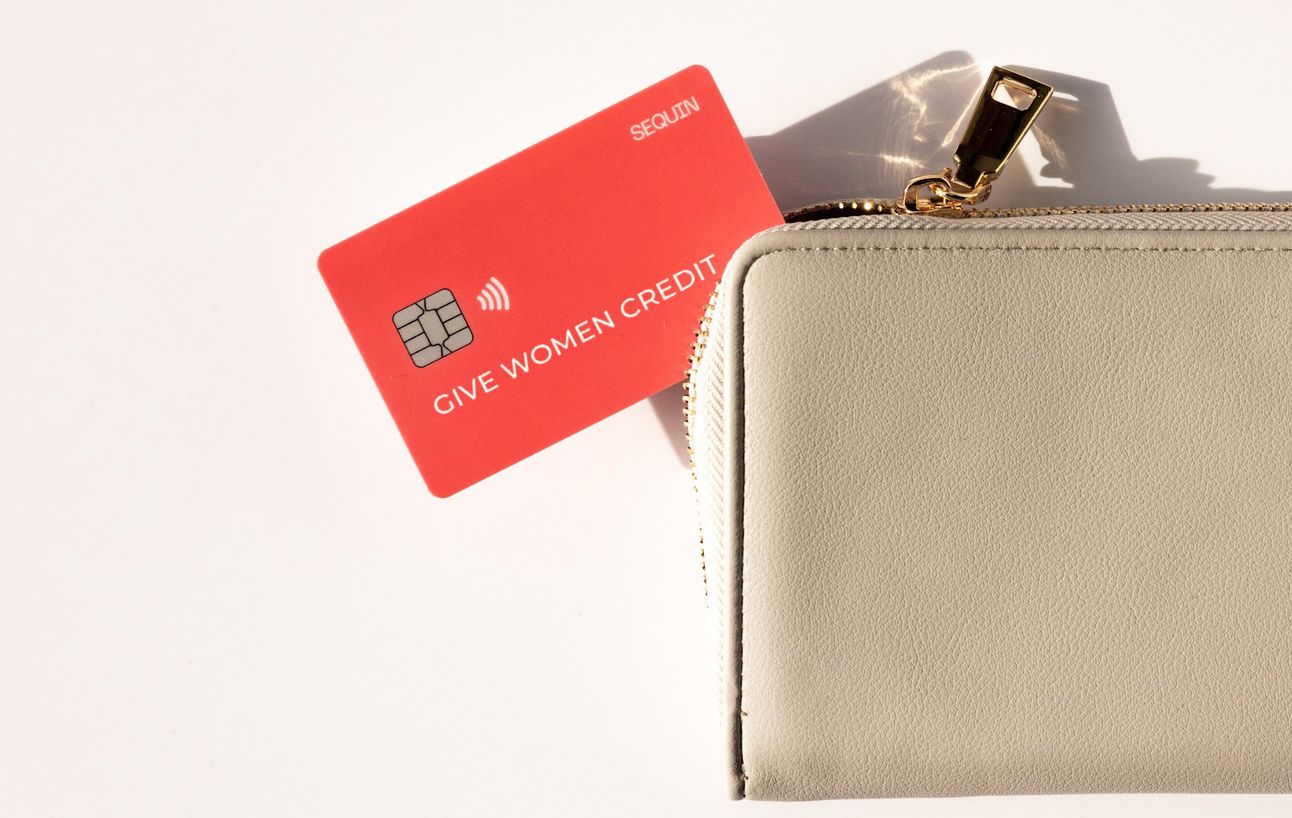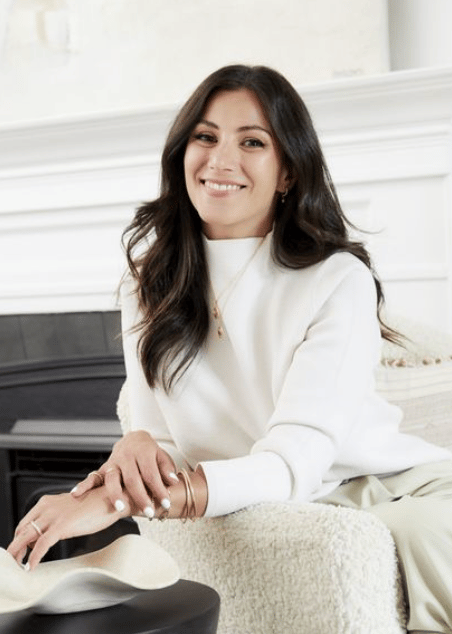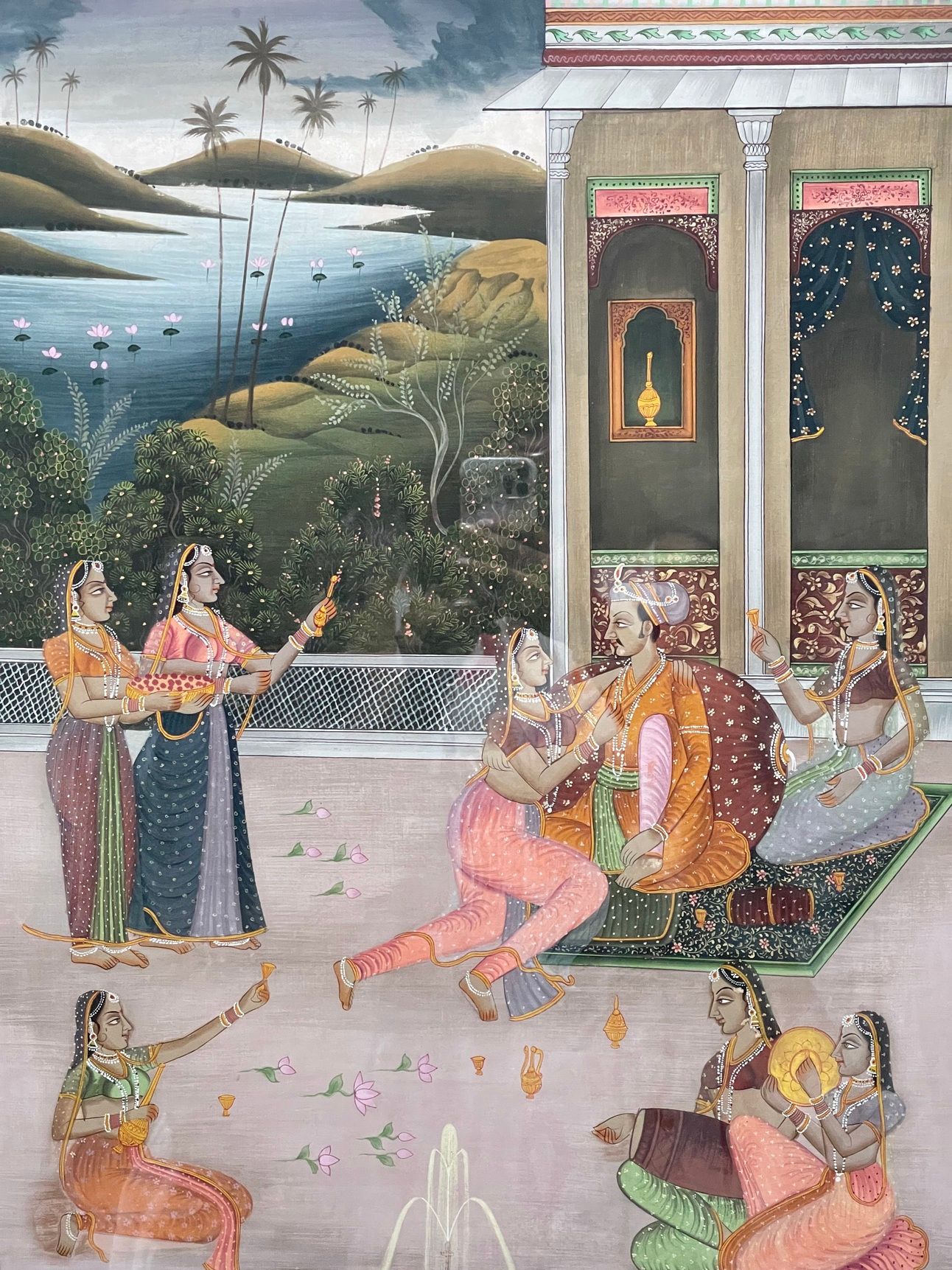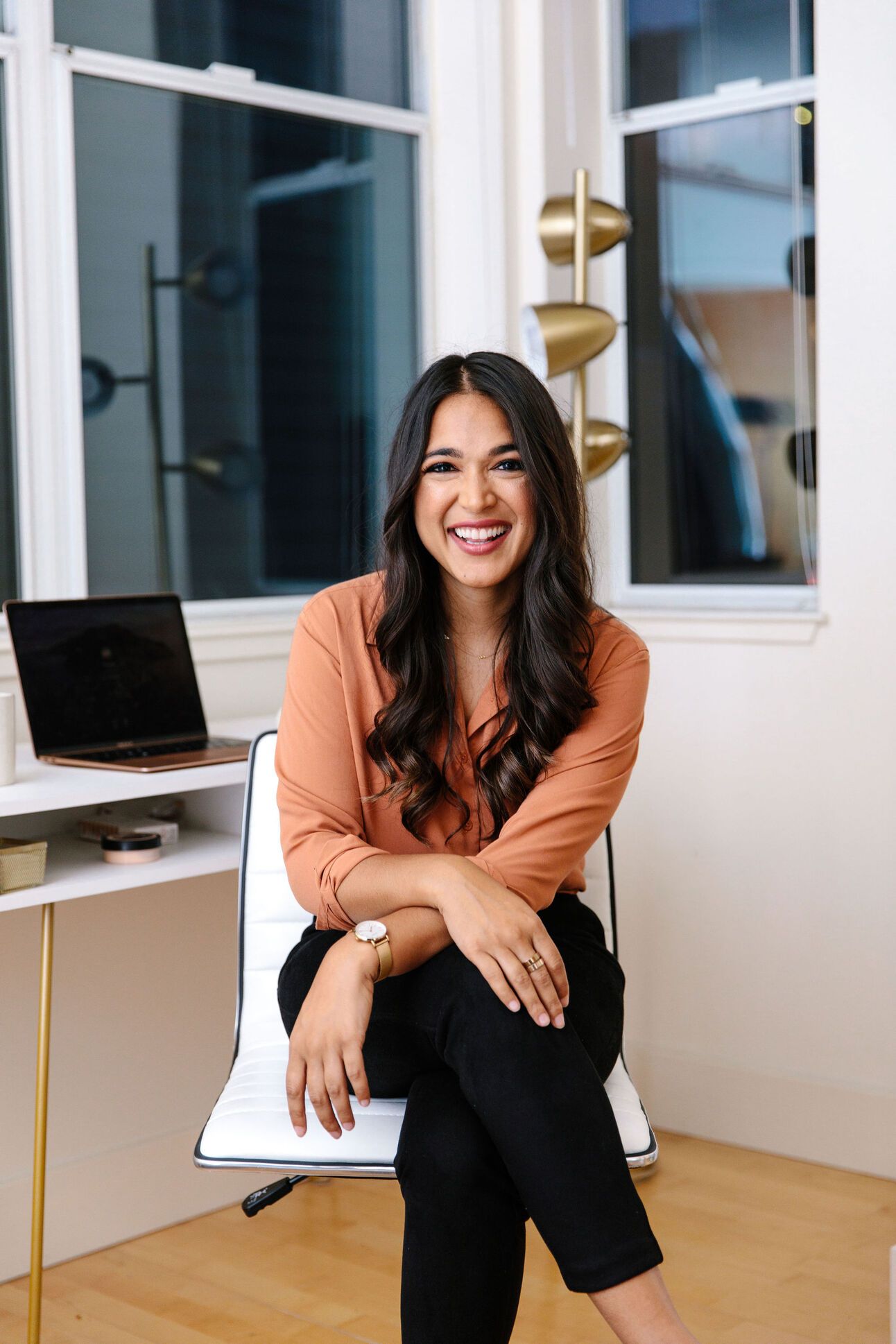- lazy girl capital
- Posts
- 50 Shades of Pink (Collar) With Vrinda Gupta
50 Shades of Pink (Collar) With Vrinda Gupta
@_badgersett its the economy stupid #relationshipadvice #capitalism #deconditioning #anxiousattachment #limerence
My view of the economy continues to be destroyed and then rebuilt. My conclusion is you have to start focusing on making more money, reject made up beauty standards (aka facial harmony), don’t visit Penmar to find a husband, be the favor person because we’re supposed be there for each other, and read Bell Hooks’s All About Love.
On that note, after extensive research, I’ve decided to sign up for a BILT card. I know I’m a hypocrite but when you’re a twenty something trying to figure out how to live in a major city, have fun with your friends, take care of your mental and physical health, perform at the highest level at your job, give back to your family and society at large, and travel the world, you have to start working smarter and staying disciplined, especially if we plan on designing a one of kind Parisan meets Southern Belle townhome (owned by the now relevant LoveShackFancy’s founder - Rebecca Hessel Cohen). If that’s not to your liking, I recommend watching Ryan Serhant’s ‘Owning Manhattan’ on Netflix, and I guarantee you’ll be dreaming of the Jardim Penthouse, which may or may not have been rented by Bad Bunny for $150K per month.
Maybe in another life I’ll be an interior designer? For now, I’ve been focused on making more friends (hoping to become a regular at a DC at home cafe similar to this LA one), find a wellness/workout routine I can stick to, getting more confident as an investor (loved this VC/PE 101 Yahoo Finance video with Bryanna Samuels), figuring out what sports league I’ll find my future partner in cause it sure as hell wasn’t running club, and doing everything possible to disaffiliate myself with all of this phony Indian representation and wealth (the Indian billionaire’s wedding was cute for 0.5 seconds now it just highlights how income inequality is worse than it was during British colonial rule). It’s also never okay to lie about you’re background even if you’re choosing not to identify with it anymore - yes, I’m talking to you Shay Mitchell.
At least we can all agree on the representation we have in women’s sports. Every notable female athlete, founder, investor, celeb/influencer are buying stakes into women’s sports teams with the likes of Meena Harris joining the club. Next week’s issue is going to cover the unpopularity and economic impacts of the Olympics.
@janaein4k A true patriot 🫡 #simonebiles #sunilee #jordanchiles #usagymnastics #olympics #olympictrials #parisolympics2024 #paris2024 #goingforgold #... See more
As always, here are some ways you can make my day:
🤝 intros to your besties in DC
😇 intros to your fave female investors in their 20s and 30s and founders challenging the status quo
Vrinda and I initially met over Twitter and finally decided to chat! My first introduction to Vrinda’s company, Sequin, was through her interview on Financial Feminist. The feminization of wealth coupled with finance trends continues to make women, first generation folks, and other minorities feel like they’ll never truly make it because what’s considered “enough” keeps evolving. There’s always this sense of feeling behind because of all of your friends, family, or fave influencers traveling the world, buying xyz material things, paying off their debt, etc. How can we truly build generational wealth?
✨The Sequin Rewards Visa® Debit Card✨ is the first debit card in U.S. history designed to reward professional women when we spend on self-care while helping us pay off pesky credit card debt, build credit, and grow our wealth in one place. You'll earn up to 6% cashback⁺ on beauty & drugstore hauls, gyms, & more -- without perpetuating a cycle of credit card debt. Sequin is backed by Y-Combinator, Charles Schwab, and angel investors such as Elizabeth Weil and Deb Liu. The company has also been featured in Forbes, ABC7 News, Bustle, and is trusted by Visa and Plaid.
Sequin's CEO, Vrinda Gupta, is a first generation immigrant and Visa alum - where she was rejected from the credit card she helped build and embarked on a mission to empower women financially. Learn more about Sequin and how you can support this once in a generation company!
How would you describe yourself outside of your professional identity? If a friend, husband, or parent were to talk about you, what would they say?
I've been told that I'm a very loyal friend and I don't give up. My love language is acts of service in a way that I'm always going to be your biggest cheerleader, but also motivate you and push you because I know if you tell me there's something you want to do, I'm going to help you find a way to get there. For my friends and family, I've always just been told I never give up on them and I'm always their biggest cheerleader. I really love helping people, especially the people I love, to be the best versions of themselves, however they define it.
When you were younger, what brought you joy that has translated to where you are in your life now?
Growing up, I always loved crafts. All the pictures of me growing up are of me sitting and crafting. I loved taking different materials and figuring out what to do with them, whether it was making a collage with natural materials or drying flower petals for arts and crafts. Working on my startup now feels like a big arts and crafts project. You have to be really resourceful, do whatever you can with what you have, and if you don't have it, you need to find a way to seek it out and put things together in creative ways. It's about taking what you have and keeping on adding to it. I feel like that's a fun through line in my life - I've just always loved doing that in different ways.
How have you viewed your educational and academic career in relation to your professional success?
Growing up in an Indian household, there was definitely a lot of emphasis on education. But my parents always told me to just find something I really love and be really good at it. It didn't necessarily have to be being a doctor or lawyer. When I thought about education, it was always about indexing for being in places that had opportunities and really smart people so I could explore and be exposed to a lot of different things.
For business school specifically, I don't think there is one right path. I don't think you can say because you got an MBA, you're qualified or not qualified to run a startup. But I think the path is really personal. What was helpful for me personally with the MBA was gaining confidence in myself that I could run a company. But did I need an MBA to do that? No. For me, that was a path that I really enjoyed and I was able to start my company with a lot of support from my classmates and teachers. But I don't think education is necessary. What's important is finding something that you love and being really good at it, and being in a situation where you can try a lot of things and feel confident in yourself.
Most of us are familiar with the pink tax, but what are pink collar jobs?
So we know, blue colored work, manual labor is traditionally more male dominated.
Pink collar jobs, such as education, social work, nursing, and the beauty industry, are vital sectors that women often gravitate towards. Despite their societal importance, these roles typically offer lower pay compared to other industries. Paradoxically, many pink collar jobs require degrees, saddling women with substantial student debt. This combination of lower wages and higher education costs often forces women in these fields to rely heavily on credit cards, accumulating significant debt despite earning good incomes. Women in pink collar roles disproportionately struggle with credit card debt, creating a vicious cycle where a large portion of their earnings goes towards debt repayment each month. This financial strain is seen as yet another obstacle in women's economic progress, compounding existing challenges such as the pink tax, gender wage gap, and lack of financial education. We’re helping eliminate these obstacles with Sequin.
How do you define financial inclusion and how has your understanding of it evolved?
When I first joined Visa, financial inclusion was very much about helping people in developing countries. I didn't even realize there was a gendered aspect to this at all. As I started learning more, I understood there were challenges at home in the U.S. too - differences with young people accessing credit, women having different experiences with the financial system, the gender wage gap, etc.
Now as I think about financial inclusion, especially related to my business, there are so many vectors to consider. It's complex. But I do think the conversations in the U.S., especially between women, are increasing, which is helpful in reducing some of the shame around talking about struggles with money or credit card debt. Financial inclusion means so many things and affects every single one of us, regardless of our financial situation. Even Warren Buffett would say there's always more to learn because things are always changing - society, policies, the world - and that affects all of us.
Can you explain how you got involved in building a new credit card at Visa and what that process entailed?
I joined Visa in a new graduate rotational program where I went through four different groups in the company. After two years, I decided to join the consumer credit team because I wanted to understand the core product. My role involved setting the terms and economics (like interchange rates), acting as an intermediary, and setting rules for issuing Visa credit cards.
Building a credit card involves many parties - the network processor (like Visa), the issuing bank, and sometimes a back-end processor. We had to figure out what benefits and perks to offer for specific demographics. For the Chase Sapphire Reserve, we did a lot of user interviews with our professional, affluent millennial persona. We looked at what rewards to give (points vs cash back), experiential benefits like airline lounge access, and how to make an entire package of a card. It was a multi-year process.
What led you to start Sequin and how did the idea develop?
After I got rejected for the Chase Sapphire Reserve card that I helped build, it was a big wake-up call. I realized if this was happening to me, who else was it happening to? Turns out it was a lot of people, women disproportionately. I decided I wanted to go deeper and truly become an expert on how these products work.
During my MBA summer internship at IDEO, I had a conversation with a woman about the idea of women-focused finances. She encouraged me to think more about it and eventually invited me to pitch to IDEO's investment committee. They ended up writing my first pre-seed check.
The real work began after that. I finished my second year of business school, took more entrepreneurship classes, and had classmates help me on various projects. I was able to finish my pre-seed round by tapping into the Berkeley network, which is where investors like the Schwab family came in.
What was the biggest value add from your experience going through Y Combinator?
Y Combinator really makes you focus on the right things. All they tell you to do is two things: build product and talk to your users. They help you focus on what's important and think in two-week sprints. We still try to do that today with our company.
Another huge benefit was having an incredible network of other founders who are really in this with you. They live and breathe this - their startup is truly their baby, it's not a hobby.
Lastly, the mentorship from the partners is incredible. They're really in it with you, not just during the batch but after. We've consistently met with our YC partner every three months on average since graduating, which is amazing continued mentorship.
How did you approach fundraising and what advice would you give to other female founders?
When I started fundraising, I had no idea what any of the terms were or how to even ask people for money. One thing that was really important for me was living my mission end-to-end in my startup. I wanted my cap table to be representative of our mission to help women have more money and feel more financially confident.
I focused on finding women who were really mission-aligned, but as you mentioned, there are very few women check writers. So I had to network a lot - at every opportunity I had, I would share what I was building and ask if anyone knew potential investors who would be interested.
A key piece of advice: not all money is green when you're fundraising. These people are your partners, and you want them to understand the mission and be there with you through the ups and downs.
Another important mindset shift is going from "I'm asking you for money" to "I'm giving you an incredible opportunity to be part of something huge." We as women, especially if you're a minority in any sense, can sometimes doubt if we're worthy. But you need to go in with the mentality that you're building something huge, you're the right person to do this, and it should be an honor for them to want to be part of this mission.
How would you explain Sequin to a 10-year-old?
Sequin teaches you about how to be smart with your money. Every time you invest in something that makes you feel good and in self-care, you can get some money back and some rewards on that. You're joining a really amazing community of other women who are on your team and on your side. Especially if you are someone who has maybe made some financial mistakes, which isn't your fault - it's society - this is a really great place for you to come and say, "Okay, I want to learn how to do the right things and really set myself up for success when it comes to all of my really big financial goals."

What are your thoughts on recent financial trends on social media, like "girl math" and “looking for a man in finance”?
I think there's a fine line between something that's a trend and funny, and when it becomes harmful. At first, it might be girls joking with other girls, like "I returned something so now it's free money." But it starts to become damaging when it goes deep into reinforcing stereotypes like "This is yet another example of why women are financially irresponsible."
Even the man in finance trend… I feel like all of us, know a friend who is attracted to that type. The ones pushing that trope forward are the ones who are like profiting off of it, especially trad wives.
I think having more conversations about finances is powerful, even if the way they start isn't always ideal. There are some amazing financial influencers out there who have really great content and are genuinely helping. For us at Sequin, we love working with many of them because they can use our products to take that financial education a step further into their daily life.
I really like the influencers who are talking about their debt payoff journey. They're showing consistency, what tools they're using, how they're thinking about it. I think just showing other women who might feel shame and guilt because society makes us feel that way, that it's okay to talk about your financial life openly. It blows open the facade of trying to show a perfect, aspirational life on social media.
Who are some of your favorite financial influencers right now?
I've always been a huge fan of Her First $100K and Tori Dunlap. I've been on her Financial Feminist podcast twice, and I love the judgment-free, super actionable tips and advice she gives. I also love The Budgetnista, Tiffany Aliche. She's done so many amazing things in the financial world. We were on "So Money" podcast.
I especially appreciate the women who have pioneered this movement like Farnoosh Torabi and Tiffany Aliche, and then Tori Dunlap shortly after. These women have done so much for the financial world, really helping women who are just getting started, regardless of age. They give everyone a fighting chance to make changes that are really going to improve their lives.
How do you approach talking about finances with friends, especially around events like bachelorette parties or weddings?
It's really challenging, and I've seen friendships fall apart over these situations. I think it's important to separate the financial aspect from the emotional one. A good approach might be to say something like, "This specific bachelorette trip is not in my budget right now, but I really want to celebrate you." The key is to make it clear that it's not about not valuing the friendship, but about your current financial situation.
Offer alternative ways to celebrate that fit your budget, whether that's a day at the park or making something homemade. The main thing is ensuring your friend doesn't feel like you don't love her just because you're unable to afford a particular trip or expense.
Communication is key, and it's on both the bride-to-be and the friends to be open about budgets and expectations. It's a tall ask because we're not used to having these conversations, but it's important to start.
What advice would you give about navigating finances in dating and relationships?
Finances are one of the biggest reasons relationships don't work. I would caution against extrapolating too much from one behavior on a first date. Instead, focus on feeling like you could have a conversation about finances. As you start thinking about getting more serious with someone, I always recommend that finances come up in some way.
A lot of your attitude towards finances comes from your family and upbringing, so asking about that can be a good way to get to know a person and their financial mindset. The green flag to look for is: is that person open to having the conversation about finances?
It's hard to say if there's a singular red flag, but if someone is demanding you pay for something or making you do something financially, that's probably a problem. The key is to feel comfortable bringing up the topic of money, because if the relationship works out, you should be having regular "money dates" to discuss your finances together.
If you could be a character in a book, movie or show, what would it be and what character would you be?
I initially thought of Arnold from Hey Arnold!, but I'm changing my answer to DW from Arthur. I feel like she really defies gender norms, says what she wants, and isn't for that girl brainwashing. She just says what she means and that's what she wants.
What are you looking forward to or what would you like to manifest or achieve in the next six months?
I want to be audacious. I want to be out there and really talking about what I believe in, which is women and our financial lives and moving that forward. We've spent a long time in product development, and now we're at the point where we're really trying to get the word out. I want Sequin to be synonymous with women's financial empowerment. So, I think just having that audacity to do that is what I'm aiming for in the next six months.

Is marketing gold as “recycled” a form of greenwashing?
 |  |
I became quasi obsessed with jewelry in the past two years. I grew up with being told how 24K gold is the only gold that truly lasts, and I was like sure whatever. Fast forward twenty years, I still think gold is THE way to flex in most Asian, Middle Eastern, and African communities, but I do agree 24K gold is the best quality and mainstream jewelry brands based in the US/Canada/UK inflate their prices (like it’s embarrassing y’all). Silver and gold jewelry have become almost permanent parts of someone’s aesthetic. Unfortunately, we’re all shopping from the same brands such as Heaven Mayhem. As someone who tries to educate herself on ethical supply chain and greenwashing practices, I wanted to see if brands like Mejuri deserve to get their flowers or if it’s all a facade.
My goal was to try to find a Remake but for jewelry (they give every fashion brand an accountability score based on traceability, wages & wellbeing, commercial practices, raw materials, environmental justice, and governance). Sadly, I wasn’t able to find a resource similar to this. However, I did come across this Business of Fashion piece on what constitutes as ‘recycled gold.’
Here are the cliff notes:
▶️ Companies like Pandora and Prada are increasingly pledging to use recycled gold in their jewelry, claiming it's more sustainable. However, critics argue that current standards for "recycled" gold are too loose.
▶️ The PMIF proposed a stricter definition for recycled gold in 2022, limiting it to products with less than 2% gold content destined for discard (e.g., e-waste).
▶️ The Responsible Jewellery Council (RJC) initially endorsed this definition but later dropped it from their proposal.
▶️ Meanwhile, the International Organization for Standardization (ISO) is working on a definition that includes "pre-consumer" and "post-consumer" recycled gold.
▶️ C. Hafner, an RJC member and gold refiner, opposed the strict definition, calling it arbitrary and acknowledging potential business benefits from brands' shift to recycled gold.
▶️ Dr. Reisert of C. Hafner claims recycled gold has a much lower carbon footprint than mined gold.
▶️ Some jewelry brands are reconsidering their approach. Monica Vinader, for example, is rethinking her recycled gold sourcing strategy as the limitations of sustainability claims become clearer.
@maaltoks maalvika.substack.com for more article recommendations & summaries, paywall-free links, and other musings on AI, sustainability, news and ... See more
So moral of the story, the greenwashing claims are still inconclusive. It does seem like Mejuri is making more of an effort than the other mainstream brands but I still question the claims around regenerated gold because their prices have risen significantly and their quality, according to countless customers, is very hit or miss. I’m definitely not a saint, but I think we have to pay attention to the potential environmental damage that impacts communities in conflict zones when materials such as copper, cobalt, gold, silver, and diamonds are mined. When it comes to gold, I prefer buying it from the motherland. 90% positive it wasn’t ethically sourced. I don’t label myself as conscious consumer, and honestly, I don’t know how each us could live a sustainable lifestyle that doesn’t cause any harm to the planet. The humanitarian in me goes down so many rabbit holes, grappling with how best we can fight casteism and live in an equitable society.
On the flip side, as an investor, I think there’s so much to learn from founders like Noura Sakkijha, who raised $40M for Mejuri and had every celeb wearing it at this past year’s Super Bowl.
Wanna be besties?
Email me at [email protected]
Follow me on Linkedln
Follow me on Twitter
Follow me on Instagram

